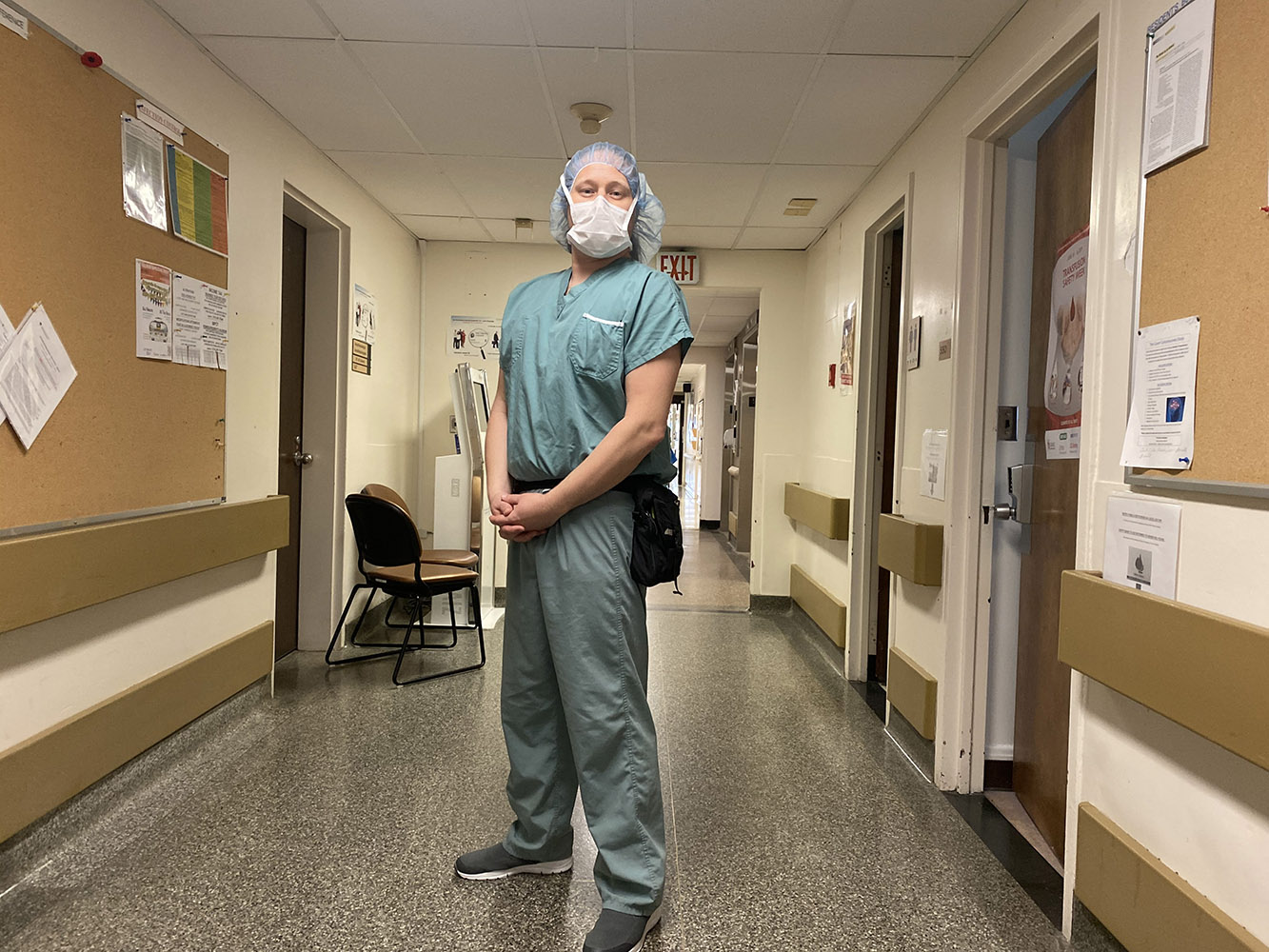Helping people breathe easy

Respiratory therapists like Eric Fontaine are critical members of the healthcare team
By Shawn Hayward
There are few things more important than the ability to breathe. Respiratory therapists, or RTs, help patients continue to perform this critical function of life, often in very difficult situations like serious illness or injury.
Often working behind the scenes, their job has come into the spotlight due to their important role treating patients with serious cases of COVID-19. They are also one of the professions most at risk of contracting the virus from patients, as they perform intubations, procedures that can send viral particles into the air.
Eric Fontaine is a respiratory therapist at The Neuro and the Montreal General Hospital. He had family who worked in hospitals and volunteered in them from ages 11 to 18, working with children, seniors and people with physical and mental disabilities. He became an RT in 2003.
On any given day, Fontaine visits the different hospital departments to read patient files and speak with patients. Many patients who need RT support will be on ventilators. As an RT, Fontaine helps intubate and extubate patients, which means the insertion and removal of breathing tubes. He will also make changes to ventilator settings, insert IVs, monitor patients’ vital signs, and position patients on operating tables and in intensive care beds.
Sometimes he will get a call that an emergency case is arriving in five minutes, and Fontaine helps make sure the team is prepared to give the best possible care.
“I think everyone should see at least one operation, especially an emergency operation,” he says. “You get to see both the fragility of a human being, whose condition can change dramatically so quickly, and all the energy and collaboration put into saving them—this to me is the definition of what humanity should be.”
When not facing an emergency, Fontaine may be sourcing materials he needs to do the job, contacting another hospital to learn how they conduct a certain procedure, calling the pharmacy for a drug, reassigning staff or just making sure everyone on the team is doing okay.
Even the mundane became critical when the COVID-19 pandemic hit and healthcare workers all over the world had to adapt to the new reality. The pandemic was particularly dangerous for RTs because inserting or removing air tubes can aerosolize the virus, creating tiny infected particles that float in the air.
Fontaine says it was a stressful time as recommendations for RTs were changing day by day and even hour by hour. He had to make sure everyone was up to date on the new recommendations.
“My job was to ensure that everyone was up to date on the latest recommendations and that everyone was properly protected,” he says. “After the first month, the whole staff had learned to work with the new routine. Human beings are naturally resistant to change, but are also able to adapt quickly when necessary.”
Things will not return to normal anytime soon, and in many professions, like respiratory therapy, they may never be the same again. Despite the challenges, Fontaine and his fellow RTs will continue giving patients comfort one breath at a time.
